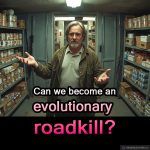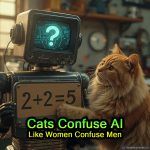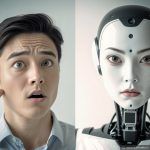The First Human Clone Could Arrive by 2040
Science Fiction Becomes Reality
The idea of human clones once belonged solely to dystopian novels and blockbuster films – but by 2040, they could be walking among us. What was once Blade Runner fantasy is now a lab possibility, with biotech firms quietly advancing cloning tech under the radar.
The real shock? We’re not ready – legally, ethically, or emotionally. Imagine explaining to your clone why they can’t inherit your estate, or worse… why they exist at all. The future isn’t just coming – it’s about to look us in the mirror and ask, “Now what?”
The Legal Nightmare
Will clones be:
- Citizens with rights to vote, marry, and own property?
- Patented property of corporations or governments?
- Medical donors – grown for organs, then discarded?
The Identity Crisis
Imagine meeting your genetic twin – but they’re 20 years younger. Would they be your sibling? Your child? Or just a biological backup?
Debate Time:
⚖️ Like if clones should have full human rights
💀 Comment: Should cloning be banned outright?
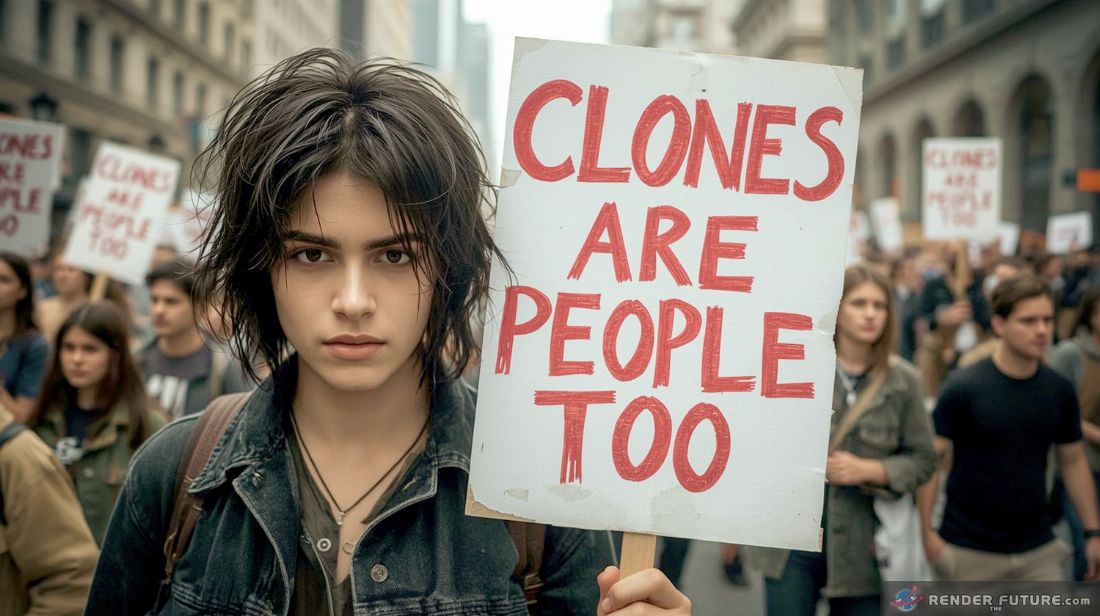
The Clone Conundrum: Humanity’s Most Existential DIY Project
Let’s cut through the sci-fi hype: the first human clone won’t arrive in a vat labeled “EVIL CORP.” They’ll likely be someone’s desperate attempt to cheat death – a grieving parent’s “rebooted” child, a narcissist’s genetic carbon copy, or a billionaire’s vanity project.
The tech is advancing faster than our ethics can keep up, with startups already offering “genetic resurrection” services to ultra-wealthy clients. But here’s the twist: Your clone wouldn’t be you – just a biological twin raised in a different era, with their own consciousness, trauma, and likely a massive identity crisis. Are we prepared to look into eyes that share our DNA but not our memories?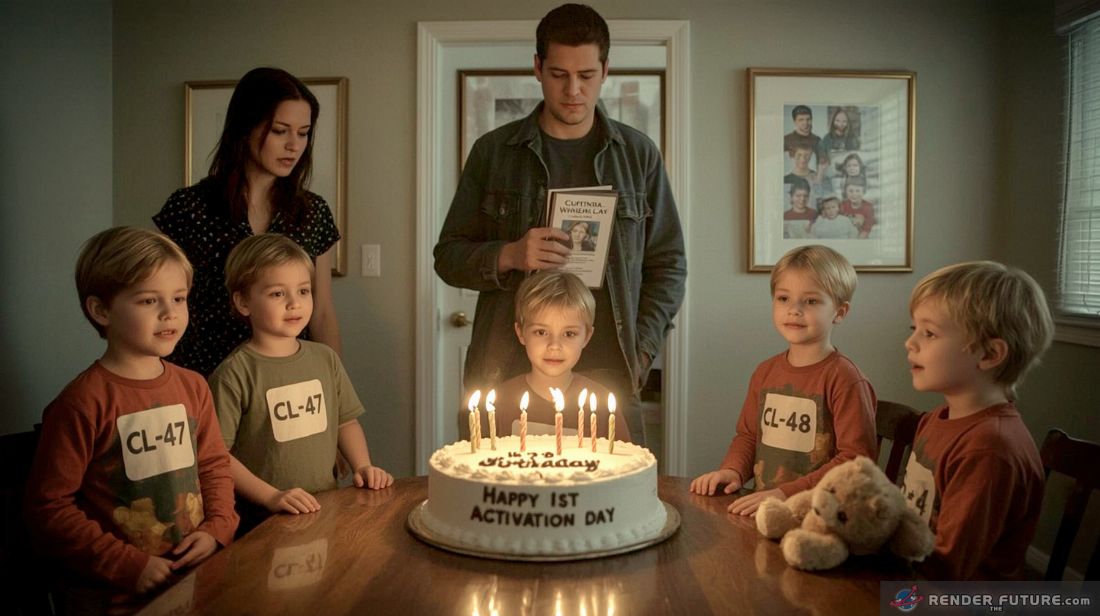
The Black Market of You
While governments debate clone rights, shadow labs are already drafting price lists: $3 million for a “vanity clone” raised as your twin, $500K for a “silent donor” grown for organs, and $50K for a fetal-stage “backup” frozen in storage.
Celebrities will battle clone bootleggers selling uncanny lookalikes to obsessed fans, while corrupt hospitals sell “discarded embryos” to biotech mercenaries.
The darkest twist? The first clones won’t emerge from ethical labs – they’ll crawl out of unregulated warehouses, their birth certificates forged, their existence a corporate trade secret. We banned human cloning to prevent a dystopia… but the free market has other plans.
This could be a world where:
- Celebrities sue over unauthorized “fan clones”
- Dictators commission armies of enhanced replicants
- The 1% keep “spare parts clones” in offshore facilities
The real horror isn’t the technology – it’s how predictably humans will misuse it. We banned human cloning in 2003… yet here we are, with biotech firms finding loopholes like “therapeutic cloning for research.” The first clone birth won’t be announced – it’ll be leaked.

The Silver Lining? A Mirror for Our Souls
Paradoxically, clones might force us to confront what truly makes us human. If a perfect genetic replica can’t inherit your Spotify playlist or childhood trauma, then what is identity? This could spark the most profound philosophical renaissance since Darwin – forcing us to define consciousness, legacy, and equality in ways we’ve avoided for millennia.
Clones could become humanity’s most unexpected teachers – living proof that DNA isn’t destiny. Visualize a world where your genetic double chooses a different life path, shattering the myth of biological determinism. Their very existence would force us to confront uncomfortable truths: Is “you” just a product of your genes, or something far more profound?
This crisis of identity might finally make us value lived experience over genetic blueprints, recognizing that consciousness can’t be photocopied. In their eyes, we’ll see both our limitations and our potential—not as creators, but as fellow travelers trying to understand what it means to be human.
Clones won’t just challenge the law; they’ll challenge our obsession with biological determinism.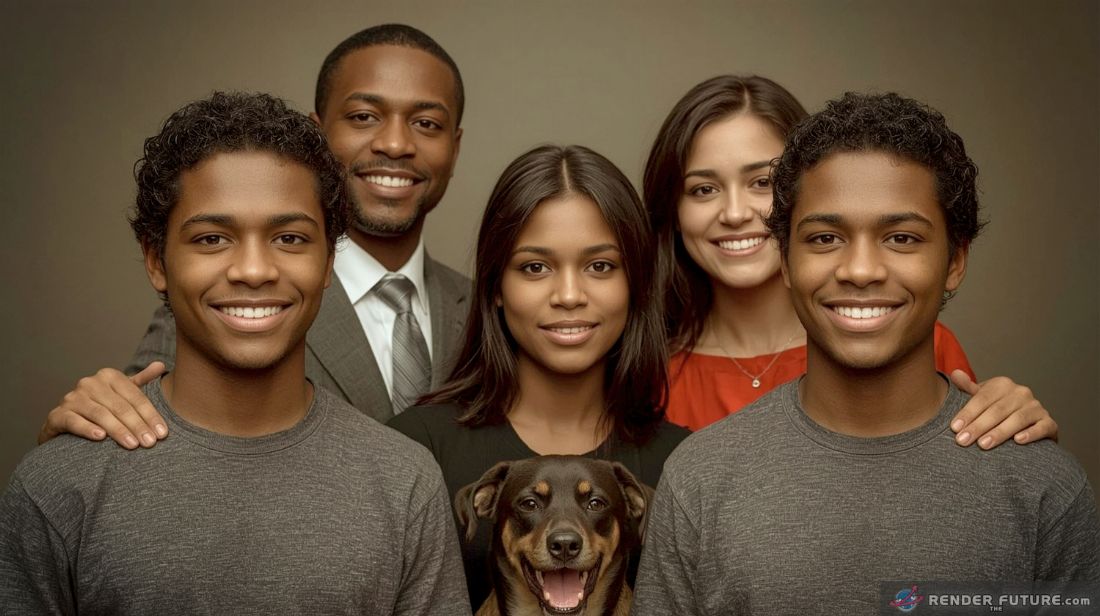
So, Will We Fear or Evolve?
The emergence of clones presents humanity with a fundamental choice about how we define personhood in the biological age. Rather than a threat, these genetic counterparts offer an unprecedented opportunity to examine what truly makes us human.
As we stand at this crossroads, we might discover that clones don’t diminish our humanity but expand it – challenging us to develop more inclusive definitions of identity, rights, and relationships. Their existence could push us toward a more thoughtful society where we value both our genetic heritage and lived experiences.
The question is whether we’ll treat them as property, monsters, or miracles.
Here’s a radical thought: What if they’re the next step in human evolution – not less than us, but unburdened by our generational baggage?
The future isn’t just creating life.
It’s deciding what that life deserves.

References and Sources:
- Nature Biotechnology: “Human Cloning Feasibility Study” (2038)
- UN Ethics of Replication White Paper (2039)
- @BioFuture’s leaked cloning trial logs (2037)

